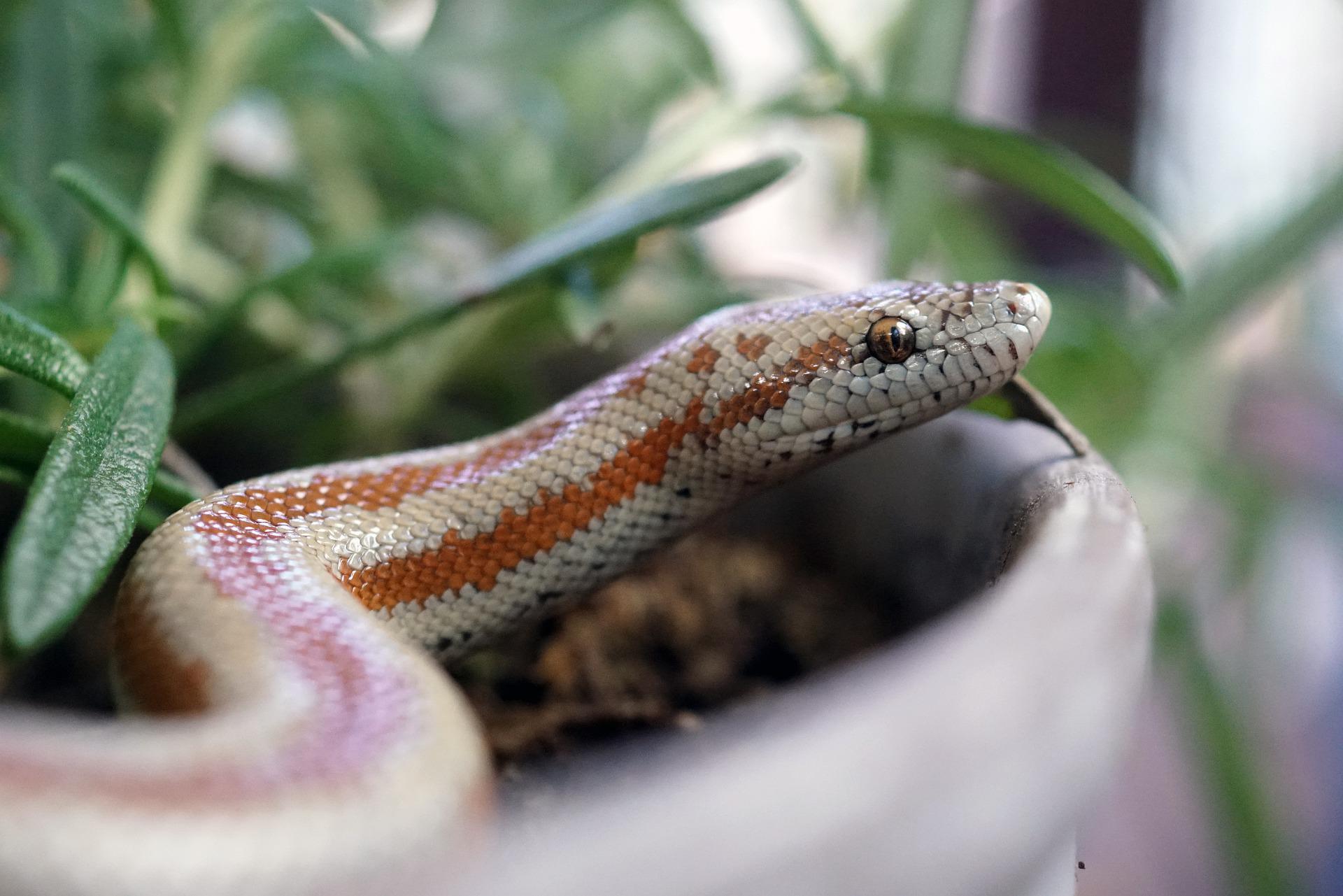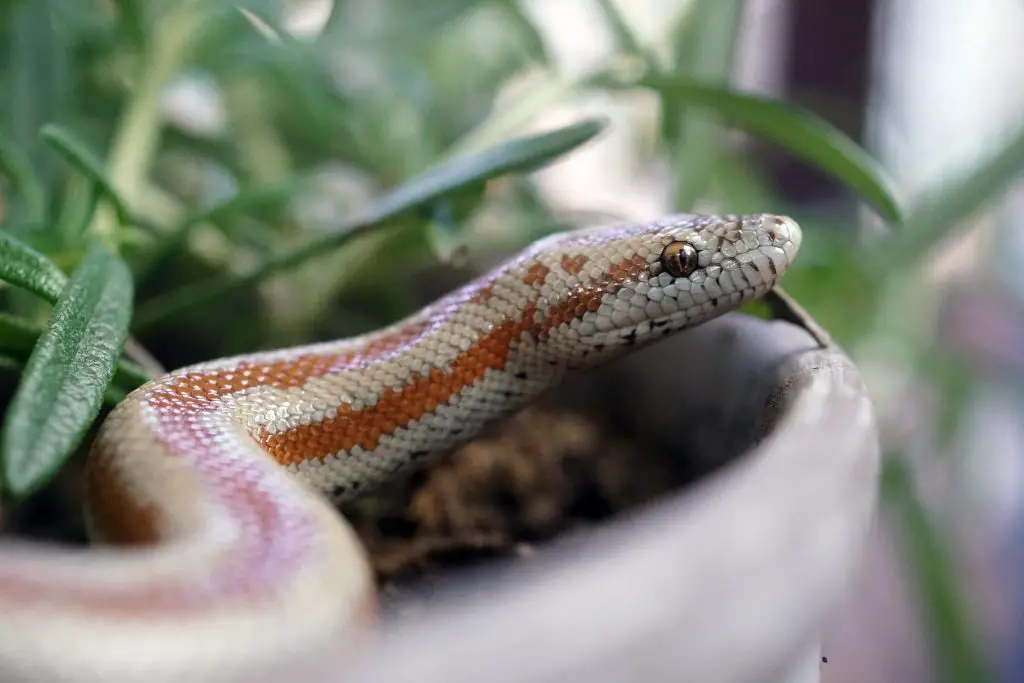Are you thinking of getting a pet snake? Before you go out and buy one, there are a few things you should consider. Snakes are fascinating creatures, but they require a lot of care and attention. In this article, we will discuss the top 10 things you need to think about before bringing a snake into your home.
Before getting a pet snake, there are 10 things to consider. These include researching the species, understanding their habitat requirements, choosing an appropriate enclosure, considering the lifespan of the snake, and understanding the costs of ownership. You should also be prepared for regular feeding and maintenance, as well as potential health issues. It’s important to make sure you’re ready for the responsibility of owning a snake before bringing one into your home.

10 Things to Consider Before Getting a Pet Snake
Are you considering getting a pet snake? Snakes can make great pets for the right person, but before you make a commitment, there are some important things to consider. Here are 10 factors to think about before bringing home a pet snake.
1. The Species of Snake
Not all snakes make good pets. Some species are more aggressive or harder to care for than others. Before getting a snake, do your research on the different species and their temperaments. Consider factors such as size, feeding habits, and lifespan. Make sure the species you choose is legal to own in your area.
Benefits:
– If taken care of properly, snakes can live for a long time, some for over 20 years
– Snakes require less daily care than traditional pets like dogs or cats
VS:
– Snakes require a specific environment and diet that can be more expensive than caring for a traditional pet
– If not handled and cared for properly, snakes can become aggressive and potentially dangerous
2. Your Experience with Snakes
If you’re new to snake ownership, it’s important to start with a species that’s easy to care for and handle. Some species require more knowledge and experience to care for properly. Consider your comfort level with handling snakes and your ability to provide the necessary care before choosing a species.
Benefits:
– Starting with an easier species can help you gain experience and confidence with snake ownership
– An easier species may be more forgiving of mistakes or errors in care
VS:
– Starting with an easier species may limit the types of snakes you can own in the future
– If you’re not experienced enough, you may struggle with caring for a more difficult species
3. Your Living Situation
Snakes require specific living conditions, such as appropriate temperature and humidity levels. Consider whether your living situation allows for the necessary environment for your snake. If you’re renting, check with your landlord to make sure snakes are allowed.
Benefits:
– Providing the appropriate environment for your snake can help ensure its health and longevity
– Making sure snakes are allowed in your living situation can prevent legal issues down the line
VS:
– Creating the necessary environment for your snake can be costly and time-consuming
– If you move frequently, it may be difficult to provide a stable living situation for your snake
4. Your Budget
Caring for a snake can be expensive. Consider the costs of purchasing the snake, its enclosure, heating and lighting equipment, and food. Make sure you’re prepared for the ongoing costs of snake ownership before committing to a pet snake.
Benefits:
– Knowing the costs upfront can help you budget appropriately for snake ownership
– Investing in quality equipment and food can help ensure your snake’s health and longevity
VS:
– The initial cost of purchasing equipment and a snake can be high
– Ongoing costs of food and maintenance can add up over time
5. Your Commitment
Snakes require daily care and attention. Consider whether you’re prepared to make the time commitment to properly care for your pet snake. You’ll need to feed your snake, clean its enclosure, and monitor its health regularly.
Benefits:
– Providing daily care can help strengthen the bond between you and your pet snake
– Proper care can help ensure your snake’s health and longevity
VS:
– Daily care can be time-consuming and may be difficult to maintain if you have a busy schedule
– If you’re not committed to providing proper care, your snake’s health may suffer
6. Feeding Habits
Snakes have unique feeding habits, and some species may require live prey. Consider whether you’re comfortable handling and feeding live prey to your snake, or if you’re willing to purchase pre-killed prey.
Benefits:
– Feeding live prey can provide a more natural feeding experience for your snake
– Pre-killed prey can be more convenient and easier to handle
VS:
– Feeding live prey can be stressful for some snake owners
– Purchasing pre-killed prey can be more expensive
7. Handling and Temperament
Not all snakes enjoy being handled. Consider whether you’re comfortable handling your pet snake, and whether the species you choose is known for being handleable. Some species, such as ball pythons, are known for being docile and easy to handle, while others may be more aggressive.
Benefits:
– Handling your snake can help you bond with your pet and provide mental stimulation
– Choosing a handleable species can make snake ownership more enjoyable
VS:
– Some species may be more difficult to handle or may require more experience to handle safely
– If you’re not comfortable handling your snake, the bond between you and your pet may suffer
8. Lifespan
Snakes can live for a long time, with some species living for over 20 years. Consider whether you’re prepared for the long-term commitment of snake ownership and whether you’re willing to care for your pet snake for its entire lifespan.
Benefits:
– Caring for a pet for its entire lifespan can be rewarding and fulfilling
– Knowing the lifespan upfront can help you plan for the long-term care of your pet snake
VS:
– The long lifespan of a snake can be a daunting commitment for some owners
– If your circumstances change, it may be difficult to provide long-term care for your pet snake
9. Health Concerns
Like all pets, snakes can develop health issues. Consider whether you’re prepared to provide the necessary veterinary care for your pet snake and whether you have access to a qualified reptile veterinarian.
Benefits:
– Providing veterinary care can help ensure your snake’s health and longevity
– Knowing the signs of common health issues can help you catch and treat problems early
VS:
– Veterinary care for reptiles can be expensive
– Finding a qualified reptile veterinarian may be difficult in some areas
10. Legal Considerations
Before getting a pet snake, make sure you’re familiar with the laws and regulations in your area. Some species may be illegal to own or may require a special permit.
Benefits:
– Knowing the laws and regulations can prevent legal issues down the line
– Some areas may have restrictions on certain species for environmental or public safety reasons
VS:
– Some areas may have restrictions that limit the types of snakes you can own
– Obtaining a permit for certain species can be difficult or expensive
Frequently Asked Questions
Thinking of getting a pet snake? Here are some questions you may have before taking the plunge:
What are the most important things to consider before getting a pet snake?
Before getting a pet snake, it’s important to consider several factors. First, make sure that owning a snake is legal in your area. You should also research the type of snake you want to get to ensure that you can provide the proper care and environment. Additionally, you’ll need to consider the cost of food, housing, and vet care for your snake. It’s also important to think about whether you’re comfortable handling a snake and if anyone in your household has allergies or phobias related to snakes.
Finally, consider your lifestyle and whether you have the time and energy to properly care for a snake. Snakes can live for several decades, so it’s important to think about the long-term commitment involved in owning one.
What are some common misconceptions about owning a pet snake?
One common misconception about owning a pet snake is that they are low-maintenance pets. While snakes may not need as much attention as a dog or cat, they still require proper care and attention. Another misconception is that all snakes are dangerous and venomous. In reality, many pet snakes are non-venomous and pose no threat to humans.
Finally, some people believe that snakes are emotionless and don’t form bonds with their owners. While snakes may not show affection in the same way as a dog or cat, they can still recognize their owners and show signs of recognition and trust.
What type of housing does a pet snake need?
The type of housing your pet snake needs will depend on the species and size of the snake. Most snakes will need an enclosure that is at least as long as the snake, with enough room to move around and climb. The enclosure should also have a secure lid to prevent escape and provide ventilation.
You’ll also need to provide a heat source, such as a heat lamp or heating pad, to maintain the proper temperature range for your snake. Finally, you’ll need to provide a substrate, such as wood chips or newspaper, for your snake to burrow in.
What do pet snakes eat?
The diet of your pet snake will depend on the species and size of the snake. Most pet snakes eat rodents, such as mice or rats, which can be purchased frozen or live from pet stores. Some snakes may also eat insects, birds, or other small animals.
It’s important to feed your snake an appropriate size and type of prey, as well as to provide fresh water at all times. Some snakes may also require additional supplements or vitamins in their diet, so it’s important to research the specific needs of your snake.
What kind of veterinary care do pet snakes need?
Like any pet, pet snakes should receive regular veterinary care to ensure their health and well-being. Most snakes will need to see a veterinarian at least once a year for a check-up and to receive any necessary vaccinations or treatments.
If your snake is showing signs of illness or injury, it’s important to seek veterinary care immediately. Signs of illness in snakes can include lethargy, loss of appetite, difficulty breathing, and changes in behavior. Regular veterinary care can help prevent and treat many common health problems in pet snakes.
In conclusion, getting a pet snake can be a unique and rewarding experience. However, it is important to consider the responsibilities that come with owning a snake.
Firstly, you must be prepared to provide proper care for your pet snake. This includes creating a suitable environment, providing the right food and water, and ensuring regular veterinary check-ups.
Secondly, you should consider the potential risks associated with owning a snake. This includes the possibility of being bitten, as well as the potential for the snake to escape and cause harm to others.
Finally, it is important to research and educate yourself on the type of snake you are interested in owning. Understanding their temperament, behavior, and needs will help ensure a successful and happy relationship between you and your pet.
Overall, owning a pet snake can be a rewarding and fulfilling experience. By considering these 10 things before getting a pet snake, you can ensure that you are fully prepared to take on the responsibilities that come with owning this unique and fascinating pet.


